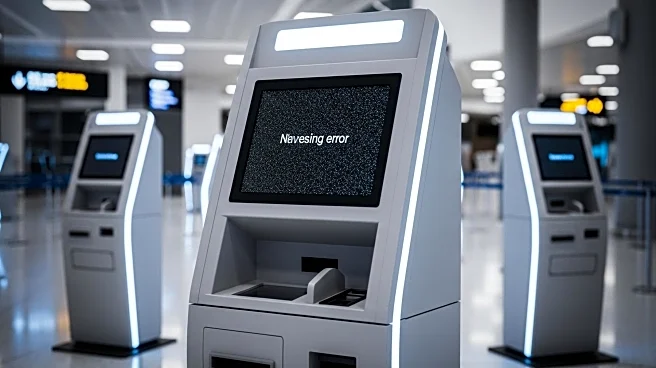What is the story about?
What's Happening?
A cyberattack has targeted check-in and boarding systems at several major European airports, causing significant disruptions to air traffic. The attack affected airports including Brussels, Berlin's Brandenburg, and London Heathrow, forcing them to switch to manual check-in processes. The service provider, Collins Aerospace, acknowledged the disruption to its Multi-User System Environment (MUSE) software, which is used by multiple airlines globally. The company is working to resolve the issue and restore full functionality. The incident has led to delays and inconveniences for travelers, with airports advising passengers to check their flight status.
Why It's Important?
This cyberattack highlights the vulnerabilities in the aviation industry's reliance on digital systems for critical operations. The disruption underscores the potential risks associated with cyber threats, which can have widespread impacts on international travel and commerce. The incident raises concerns about the security measures in place to protect such essential infrastructure and the need for robust cybersecurity protocols. As airports and airlines increasingly depend on technology, ensuring the resilience of these systems against cyberattacks becomes crucial to maintaining operational continuity and passenger safety.
What's Next?
Airports and airlines may need to reassess their cybersecurity strategies and invest in more advanced protective measures to prevent future incidents. Regulatory bodies might also consider implementing stricter cybersecurity standards for the aviation industry. The affected service provider, Collins Aerospace, will likely conduct a thorough investigation to identify the breach's source and prevent recurrence. This incident may prompt other industries to evaluate their cybersecurity frameworks, given the interconnected nature of global digital infrastructure.
















